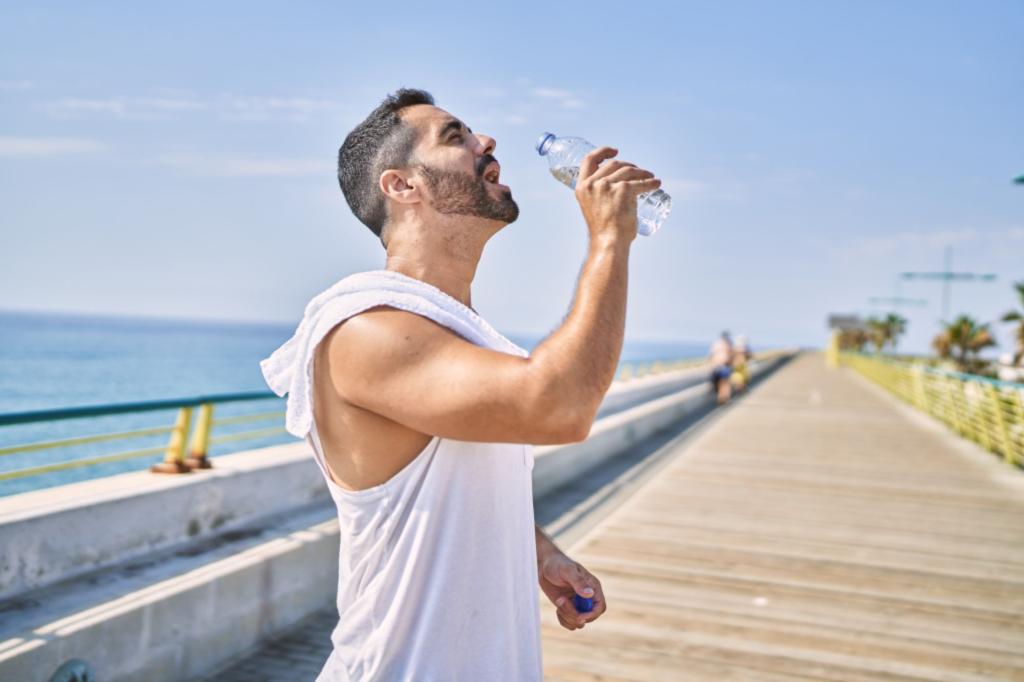Summarize this content to 2000 words in 6 paragraphs
Not drinking enough fluids during the summer can land you in hot water.
Water makes up roughly 60% of your body weight — dehydration happens when you don’t replenish the fluids you lose to sweat, tears, and urine.
Most people don’t drink enough water, with 75% of Americans considered chronically dehydrated. Severe dehydration can cause serious problems, such as seizures, brain damage and even death.
Dr. Heather Viola, an assistant professor of medicine at Mount Sinai, dispels hydration myths and shares tips with The Post on how to beat the heat this summer.
Best hydration sources
There are all sorts of fancy electrolyte drinks on the market, but Viola says that good, old-fashioned H2O is still your best hydration source.
If you hate the taste of water, Viola recommends infusing it with lemon or lime or adding electrolyte powder, which can help athletes replace essential minerals lost through sweat.
Watermelon, celery, lettuce and strawberries also have a high water content.
How much water you need
The age-old rule of thumb is to drink 8 cups — or 64 fluid ounces — of water a day. But Viola says that hydration needs vary from person to person, especially in the summer.
“A lot of guidelines certainly suggest that you should try to consume ½ an ounce to 1 ounce of water per pound of body weight each day,” Viola said. “People playing sports or … in the hot weather or working outside should shoot for 1 ounce of fluid per pound of body weight.”
You should also consider the other fluids you’re drinking, especially if it’s alcohol or caffeine, which can cause water loss.
Viola recommends drinking one glass of water when you wake up, before drinking your first cup of coffee, and having a glass of water for every alcoholic beverage you consume.
When you should hydrate
You should be drinking water throughout the day. If you have a big, outdoor event coming up, like a half-marathon or a rugby match, Viola suggests thinking about your hydration at least a week ahead.
“You want to be making sure consistently every day you’re staying hydrated, replenishing your losses” in preparation, she said.
How to tell if you’re dehydrated
One good indicator of hydration is your urine color. If it looks dark, tea-colored or like apple juice, you’re dehydrated. Aim for a light or pale-yellow color, Viola advises.
Other signs are dizziness, lightheadedness or a dry feeling in your mouth.
“By the time that you’re already thirsty or craving water or something to drink, by then, you’re already dehydrated, usually,” Viola said.
She advises carrying a refillable water bottle, especially in the summer.
Can you overhydrate?
Though some people have died from drinking too much water too fast and disrupting their electrolyte balance, Viola reports that overhydration is an extremely rare occurrence.
“It’d be really hard to do that,” she said. “So I wouldn’t want that thought to get in the way of keeping yourself as hydrated as possible on a hot summer day.”


